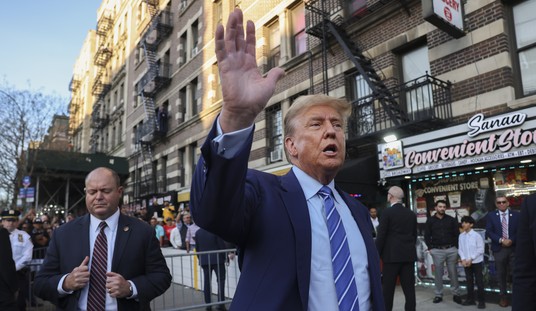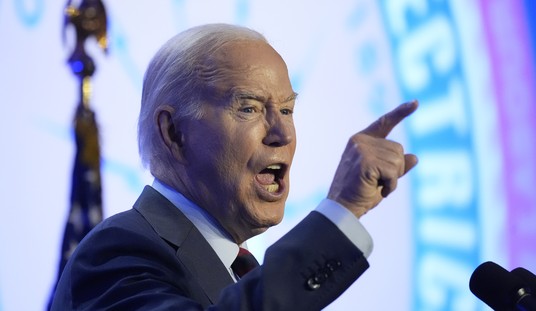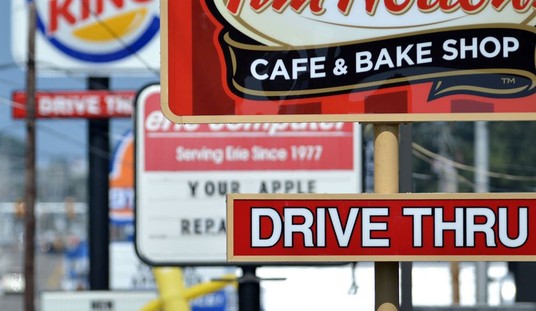
British health trusts — in charge of budgets allotted from the socialized National Health Service (NHS) in the United Kingdom — have been rationing cataract care to patients who are slowly going blind because the NHS cannot afford to provide care to them.
After a watchdog group called NICE instructed the trusts to begin offering surgery for cataracts — which reportedly afflict 4.5 million people in the UK, with many being denied surgery even with severely impaired sight — it was discovered nearly 2/3rds of the trusts had ignored the request because it was not legally binding.
A spokesman for NHS Clinical Commissioners, representing CCGs, said they faced ‘spiralling demands, competing priorities and increasing financial pressures’ while trying to ensure patients ‘get the best possible care’.
He added: ‘On a daily basis clinical commissioners are forced to make difficult decisions that balance the needs of the individual against those of their entire local population.’
This kind of rationing in socialized — or government-run — medicine is something conservatives have been warning about since progressives began touting the benefits of single payer health care as progs sold the snake oil of Obamacare. Sally Pipes, president of the Pacific Research Institute, tackles the subject regularly in op-eds and always stresses the same thing: “Long waits for care are endemic to government-run, single-payer systems like the NHS. Yet some U.S. lawmakers want to import that model from across the pond. That would be a massive blunder.”
Her newest in Forbes is no exception.
Nearly a quarter of a million British patients have been waiting more than six months to receive planned medical treatment from the National Health Service, according to a recent report from the Royal College of Surgeons. More than 36,000 have been in treatment queues for nine months or more.
…
Patients face long wait times and rationing of care in part because the NHS can’t attract nearly enough medical professionals to meet demand. At the end of 2018, more than 39,000 nursing spots were unfilled. That’s a vacancy rate of more than 10%. Among medical staff, nearly 9,000 posts were unoccupied.
These shortages could explode in the years to come. In 2018, the Royal College of General Practitioners found that more than 750 practices could close within the next five years, largely because heavy workloads are pushing older doctors to retire early.
The NHS recently announced that, in a desperate attempt to shore up its doctor workforce, it would pay British general practitioners working abroad more than $24,000 in “relocation support” to come back to the country. The Service is also trying to encourage doctors to come out of retirement.
Great Britain’s health crisis is the inevitable outcome of a system where government edicts, not supply and demand, determine where scarce resources are allocated.
And yet, remarkably, voters in the United States still insist they trust progressives hawking Medicare For All over the Trump Administration’s and conservatives’ plans, whose health care moves over the last three years have been lowering costs, offering cheaper health insurance, and expanding choice.
POLITICO/MC Poll: Voters overwhelmingly trust Democrats (45%) over Republicans (35%) when it comes to health care, and have little faith in the president’s ability to make the system better. https://t.co/7vgcyMCqIp
— POLITICO Press (@POLITICOPress) April 7, 2019
“As health care is pushed to the forefront of the 2020 agenda, our polling suggests President Trump may struggle to attract voters with his promise of a new plan,” said Tyler Sinclair, Morning Consult’s vice president. “While over eight in 10 Republicans (82 percent) have ‘a lot’ or ‘some’ trust in the president to overhaul the U.S. health care system, independents and Democrats trust the president ‘not much’ or ‘not at all’ on this issue (65 and 93 percent, respectively).”
It’s stunning American voters are so gullible they refuse to simply do their homework and look at data coming out of nations with socialized systems of health care before choosing to implement the same here. Fortunately, since things are already shifting in the health care marketplace toward choice and affordability (and since Obamacare is facing a court battle), the polls may also see a shift over time once people begin to realize they have the option of actual affordable care again and they won’t have to fear not receiving critical care for themselves or their families.














Join the conversation as a VIP Member